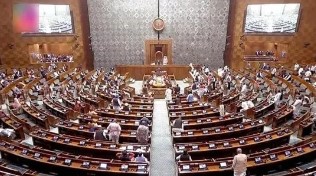The Central Government tabled the Waqf (Amendment) Bill, 2024, in the Lok Sabha, on Thursday. The bill, introduced by Minority Affairs Minister Kiren Rijiju, seeks to amend the Waqf Act, 1995. The introduction of the bill is expected to provoke intense debate and resistance from Opposition parties.
The Opposition has voiced strong objections, alleging that the bill aims to undermine the rights of the Muslim community regarding their land, assets, and the “freedom to manage religious affairs” as guaranteed under Article 26 of the Indian Constitution. There are concerns that the proposed changes could lead to the deprivation of these rights.
Opposition leaders have called for the bill to be referred to the parliamentary standing committee for more thorough scrutiny before it is considered for passage. The Samajwadi Party has already expressed its disapproval of the bill.
Congress leader KC Venugopal criticised the bill, describing it as an “attack on the federal system.” He asserted that the bill’s attempt to address issues related to the powers of State Waqf Boards, property registration, and encroachment removal was problematic.
Congress MP Karti Chidambaram condemned the bill, labelling the government’s motives as “sinister”. He argued that there has been inadequate consultation with stakeholders and insisted that the bill should be reviewed by the Standing Committee prior to being passed.
The Waqf (Amendment) Bill, 2024, aims to address various issues concerning the powers of State Waqf Boards, the registration and survey of Waqf properties, and the removal of encroachments. A key provision of the bill is the mandatory registration of Waqf properties with the District Collector’s Office to facilitate their evaluation.

















